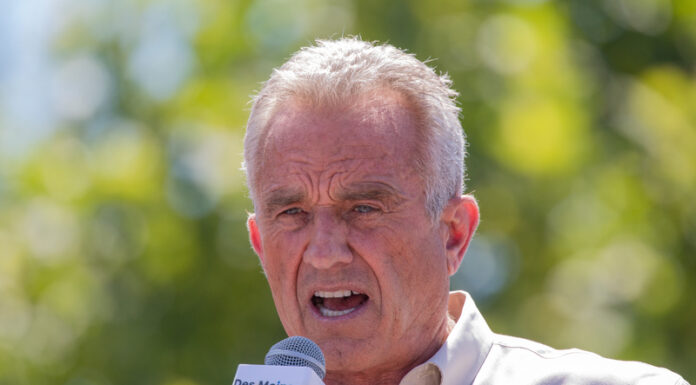According to Mother Jones magazine, Robert F. Kennedy Jr. covertly taped over 60 discussions with his second wife, Mary Richardson Kennedy, during their acrimonious divorce before she died in 2012. The magazine acquired these revelations through documents and audio records.
The documented conversations cover multiple years and involve phone and face-to-face dialogues. They highlight contentious exchanges as Kennedy engaged in affairs with several women, including his present wife, actress Cheryl Hines. In one of the recordings, Kennedy rationalized his decade-long infidelity, asserting he was “being abused at home.”
The disclosure comes amid intense scrutiny of Kennedy, a former presidential contender and nominee for the Secretary of Health and Human Services role under the Trump administration. The recordings, which might have broken California’s two-party consent law at least once, illustrate Richardson’s emotional turmoil and her numerous unsuccessful reconciliation attempts as Kennedy pushed for the finalization of their divorce.
Kennedy reportedly used the recordings as a basis for a 60-page sworn statement outlining his allegations against Richardson. The document encompassed various elements of their turbulent divorce, including relationship disputes, misconduct accusations, and supporting evidence for his case.
In response, Richardson prepared a counterclaim disputing Kennedy’s allegations. She accused him of physical abuse, prescription drug misuse, and being a “sexual deviant.” Kennedy’s allegation that she had discussed suicide in front of their children was among the claims she contested. Her document detailed instances of alleged physical altercations and suggested Kennedy had deliberately left evidence of his infidelity around their home to torment her.
Richardson’s counterclaim also alleged Kennedy of conducting a harsh campaign against her. Two months after drafting her rebuttal, which was never submitted to court, Richardson died by suicide at her residence in Bedford, New York, in May 2012.
During their marriage, Kennedy kept what he referred to as his “sex diary” in small notebooks. His private diary was disclosed to the public in 2013, revealing detailed accounts of his liaisons with 37 women. Kennedy used a numerical coding system in the diary to categorize his sexual encounters, with each woman’s name accompanied by a number from one to 10, signifying specific sexual activities. Allegedly, a score of 10 indicated full sexual intercourse. The diary also included Kennedy’s reflections on battling what he labeled his “lust demons” and acknowledging his propensity to sabotage his life despite its many advantages.
Caroline Kennedy, his cousin and the daughter of President John F. Kennedy has publicly criticized his nomination as Secretary of Health and Human Services. In a letter to senators, she described Kennedy as a “predator” and a “hypocrite” who had “misrepresented, lied, and cheated his way through life,” specifically citing his history of substance abuse and deceptive behavior.
The unveiling of these recordings aligns with Kennedy’s Senate testimony on Wednesday, January 29, 2025, when Sen. Michael Bennet of Colorado questioned him about his endorsement of various conspiracy theories. Bennet challenged Kennedy during the Senate Finance Committee hearing about his history of making unfounded claims on subjects ranging from COVID-19 to Lyme disease, compelling Kennedy to admit to broadcasting conspiracy theories.
The Kennedy family has been entwined with numerous political, personal, and legal scandals. President John F. Kennedy’s term was tainted by accusations of extramarital affairs, notably with actress Marilyn Monroe.
In 1969, Senator Edward “Ted” Kennedy was embroiled in the Chappaquiddick incident, where he drove off a bridge, leading to the drowning death of his passenger, Mary Jo Kopechne. His delay in reporting the accident led to widespread condemnation and legal implications.








